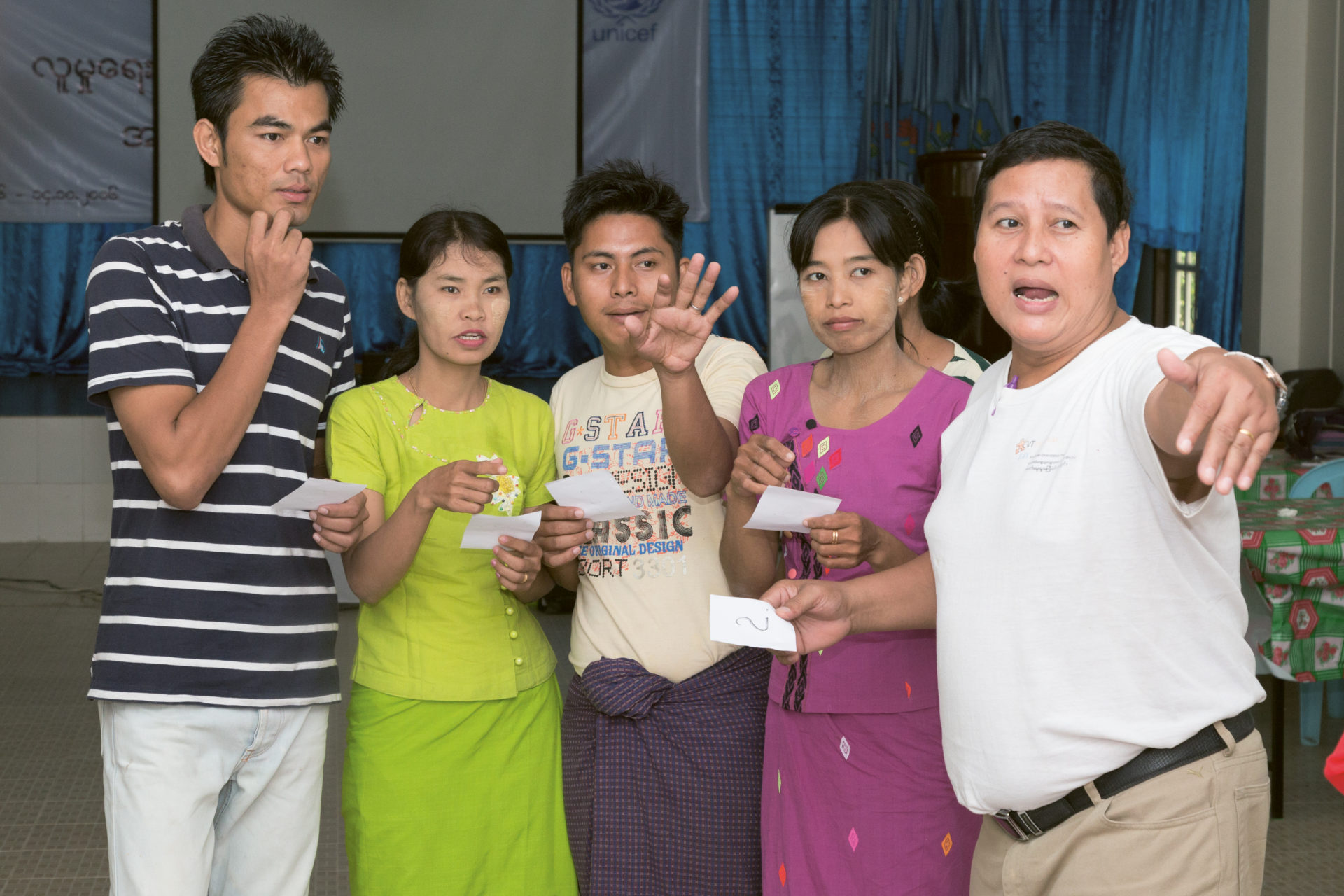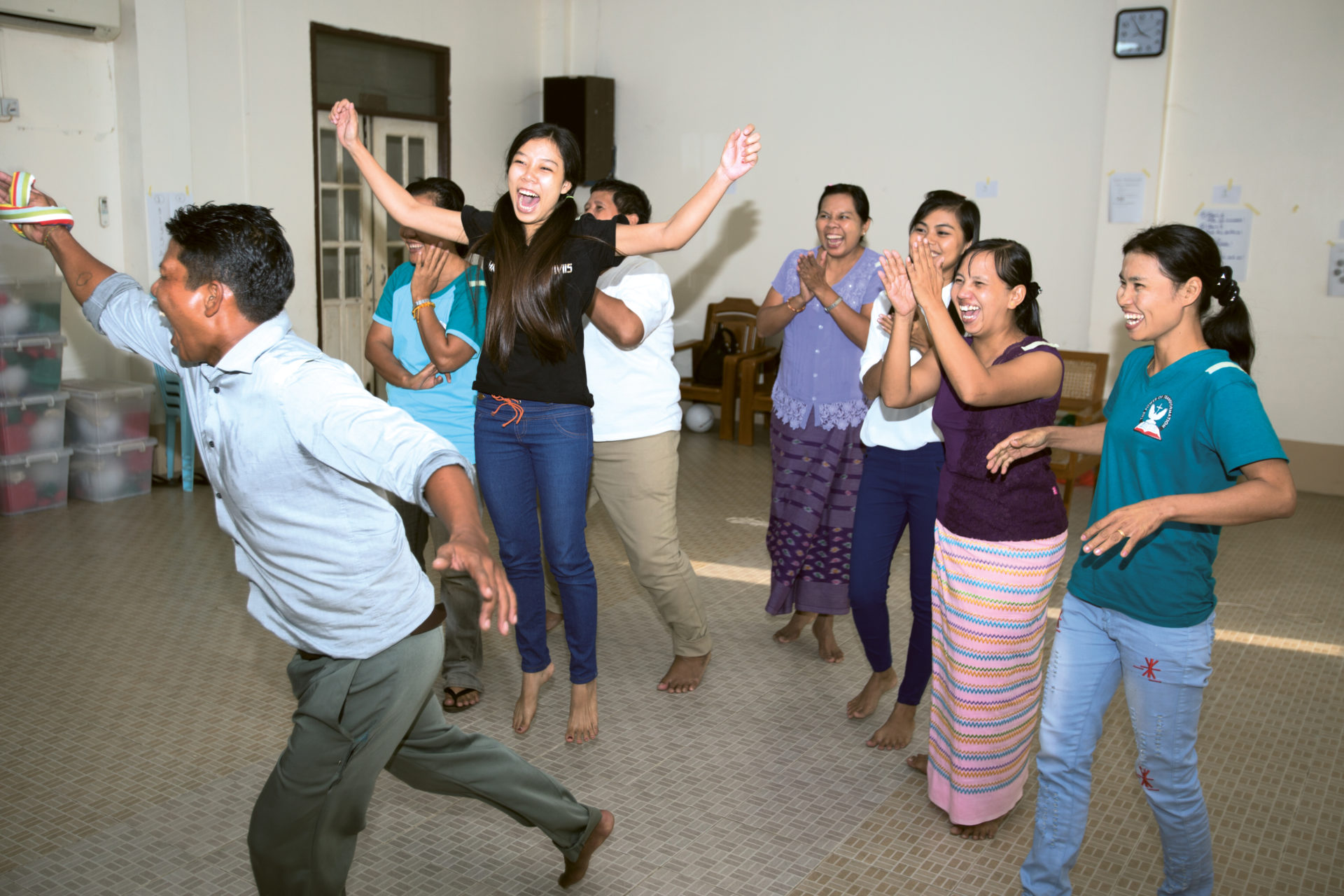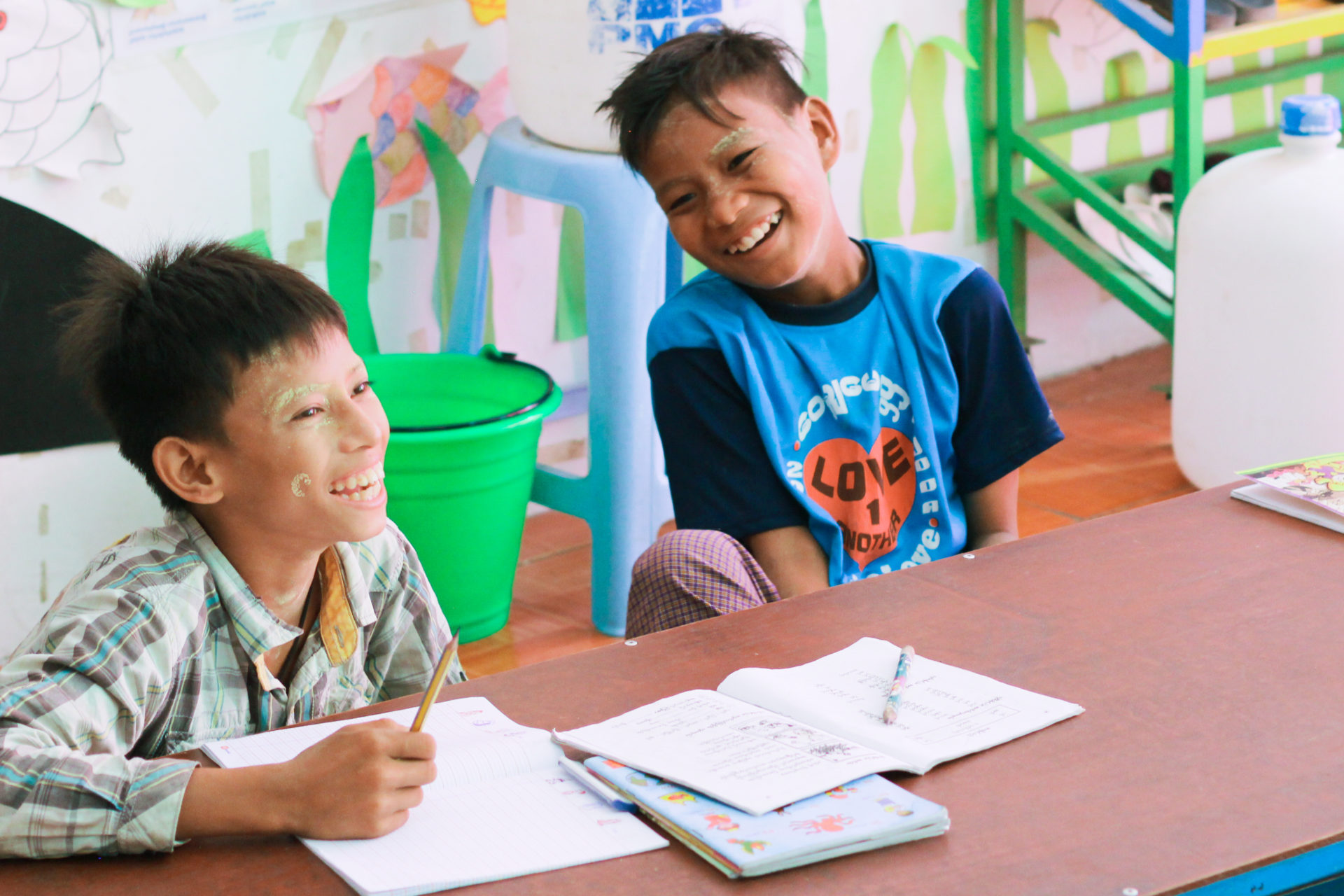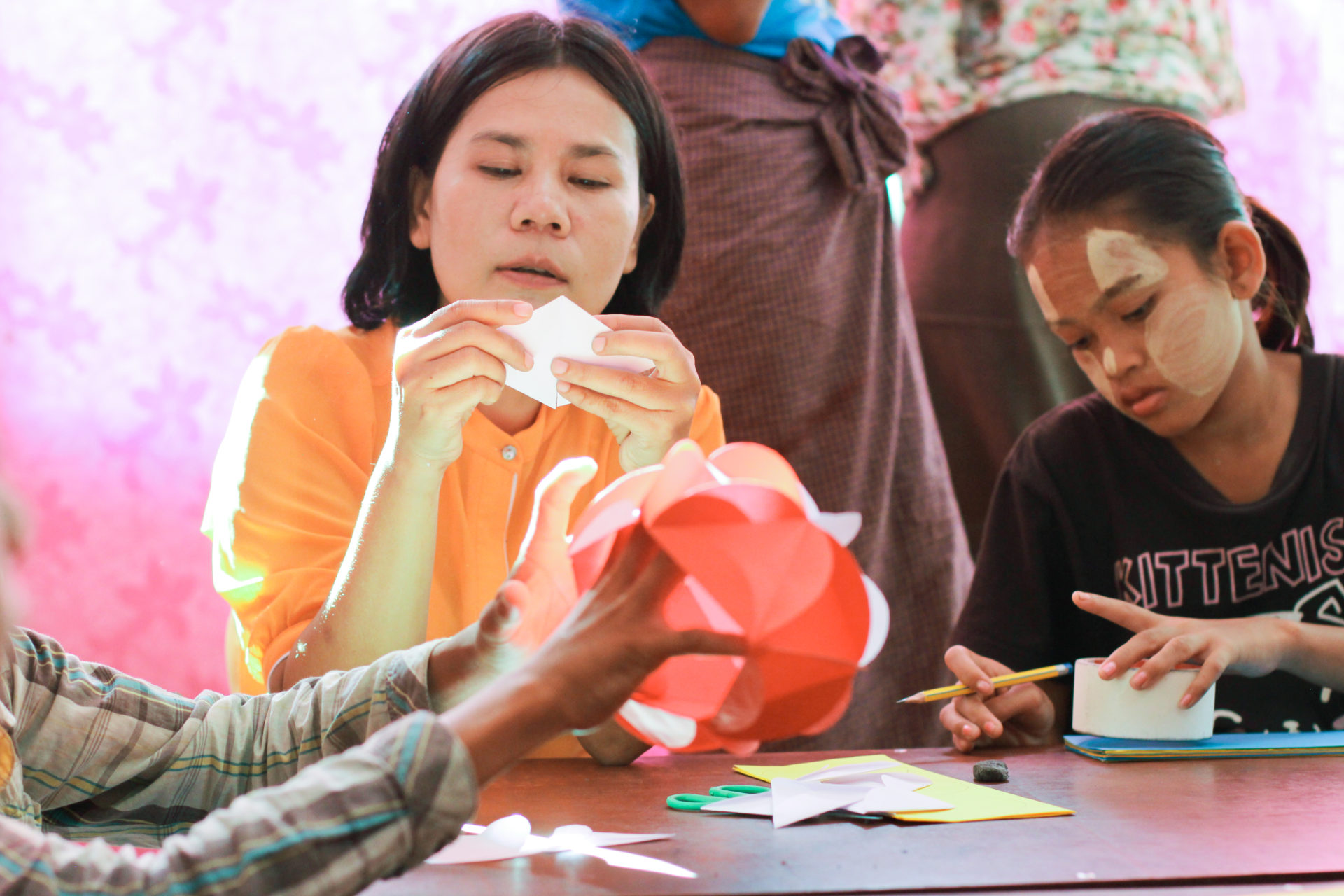“The word relay is my favourite. The children move and the team competition motivates them. I can really wake up my students’ thirst for knowledge.” Myat Myat Soe is one of the teachers in Myanmar who has completed a SA4D course on sport and play in schools. Through play-based lessons, children who dropped out of school can get back into school life.
In Myanmar, more and more children leave school without having learnt to read and write properly. Their parents cannot afford the school fees, or the children need to work to contribute to the family’s income. Since 2010, Myanmar is increasingly less isolated. However, the latest developments show that that the product of the economic growth is ending up in the hands of a few rich families. Because of persistent poverty, lots of families move to the cities, where they survive on odd jobs. The results are terrible for the children: rather than going to school, they are forced to work in restaurants or factories.
The transfer of knowledge is just one of the aims
“Most children work seven or eight hours a day,” says Ye Yint Kyaw, a teacher and participant in the SA4D course. “That’s why the classes are not during the working day – they’re between six and nine in the morning.” In non-formal classes, 6 to 12-year-olds follow lessons adapted to their needs. Not only the timetable but also the teaching methods are aimed at supporting particularly disadvantaged children. Through playful lessons, they develop the motivation and energy to actively join in. The transfer of knowledge is just one of the aims. Through play, the children practice focusing on a task, working together in a team and finding creative solutions.
SA4D and the local teachers develop the teaching materials together
SA4D supports local organisations Education 4 Youth (E4Y) and Hope for Shining Stars (H4SS – S4SK), which offer the non-formal classes by training their teachers for play-based teaching. To ensure the long-term quality of the lessons, SA4D has worked with the teachers to develop practical tools, including a handbook for sport and play based methods of learning and checklists for minimum standards. The teachers also learn how to evaluate their lessons and how to further develop their teaching materials. Myat Myat Soe can confirm that sport and play at school don’t only help the children: “I learnt lots of tips and tricks for increasing the children’s motivation to learn. It was really fun!”




